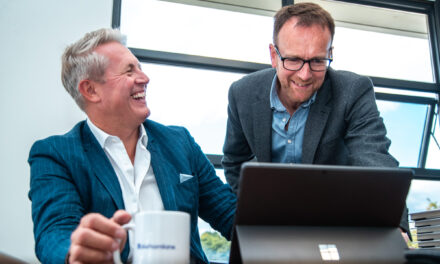Diversity and inclusion are not just buzzwords. They are essential for any organisation that wants to be successful in today’s global economy. A diverse workforce can help organisations to innovate, solve problems, and better understand their customers. When people from different backgrounds come together, they can share their different experiences and perspectives, which can lead to new and innovative ideas.
This in turn enables innovation to flourish as people come at problems with fresh ideas and can apply their diverse knowledge in new ways. It also prevents a company from making simple mistakes by recognising when their initiatives do not take into account other underrepresented groups. For example, in anticipating bias in data science projects or preventing insensitive marketing messages.
Creating a more diverse workplace is a challenge for many businesses. Institutional problems, such as unconscious bias, can prevent underrepresented groups from applying for roles, being hired, or developing into more senior leadership roles. People either hire or promote new team members that are like themselves or have perceptions of particular groups that lead them to believe they would not be suited for a particular role. This can lead to a spiral where a company becomes more and more homogeneous. Many business leaders also argue that diversity is inextricably linked to the skills gap – there simply aren’t enough people from underrepresented groups embarking on careers in areas such as development or data science to help representation.
Breaking the cycle of unconscious bias in hiring and promotion requires a proactive approach. Businesses cannot simply wait for the skills gap to close on its own, nor can they assume that hiring and promotion practices will change without intervention. To take a big step forward, organisations could develop upskilling programs.
What about diversity and inclusion in marketing?
Looking specifically at marketing, the perception is that there is less of a diversity problem. Indeed, women do make up around 60% of marketers and, in the UK, 11% of workers are BAME – which is in line for the population as a whole. However, delve a little deeper and we see that both BAME and female marketers are hugely underrepresented at senior and mid-management roles. BAME representation as a whole is also misleading. The vast majority of the UK’s marketing companies are in London where the population is around 40% BAME. If we also consider the marketing technology sector – representation is even worse and more in line with the wider tech industry.
On paper at least, there are plenty of people from underrepresented groups already in marketing. The issue is that they are not able to rise up through the ranks. In fact, with marketing increasingly becoming a more technical and data-driven field, we are actually at risk of diversity figures going quickly in the wrong direction. The obvious answer is for businesses to concentrate on cultivating the talent they already have and hiring more diverse team members with a view to developing their skill sets.
How can marketing upskilling programmes help?
As mentioned, upskilling your marketing team is not just equitable, it also makes good business sense. The modern marketing landscape is constantly evolving, with new technologies and techniques emerging all the time. To stay ahead of the curve, businesses need to invest in upskilling their employees so that they have the skills and knowledge they need to succeed.
Hiring external experts can be expensive and time-consuming, and it can be difficult to find experts who have the right combination of skills, experience and internal business know-how. Upskilling your existing team members is a more cost-effective and efficient way to get the skills you need. It also allows you to tailor the training to the specific needs of your business and your employees.
Additionally, upskilling can improve employee satisfaction and retention. When employees feel that their employer is investing in their development, they are more likely to be happy and engaged in their work. This can lead to decreased turnover and increased productivity.
Training and development schemes can help organisations to break down preconceived notions about their team members. Many businesses are surprised at the hidden talents of their employees, and their aptitude and appetite for acquiring new skills. These schemes can also highlight how some employees have been pigeonholed into certain roles simply because of what managers think they want, or because they feel they are unable to ask for more opportunities. In short, upskilling can help to tackle the unconscious bias that is so harmful to diversity goals.
At its core, upskilling gives every person the ability to develop their skills and progress their career. It is not a silver bullet to the diversity problem, but it is a powerful tool that can be used to create a more inclusive and equitable workplace. When done thoughtfully, upskilling can help to level the playing field for all employees, regardless of their background or experience.
Sarah Gilchriest is Chief People Officer at Workforce Learning, the group that encompasses QA, Circus Street and Cloud Academy. Sarah is passionate about creating a business that is thriving creatively, financially, and culturally. Sarah's priority is driving the businesses exponential growth and global expansion without sacrificing the people-focused, award-winning culture of which the business is exceptionally proud. Previously, Sarah was President of Circus Street, joining the company in 2016.






